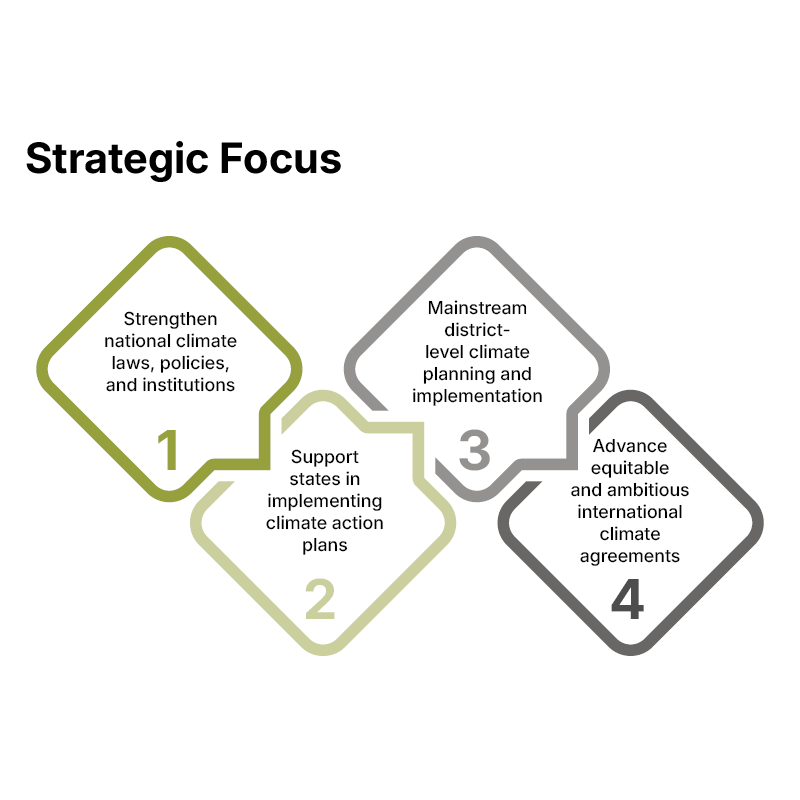
Climate Governance
Overview
India is at a critical juncture in addressing the complex challenges of climate change, which include mitigation, adaptation, resilience, and the need to ensure a just transition. As the country works towards building a net zero and climate-resilient economy over the next three decades, it requires comprehensive and forward-looking laws and institutional mechanisms to guide climate action at the national, state, district, and city levels. At the same time, there is an urgent need to design and implement effective climate action plans that are tailored to the priorities of states and districts, and aligned to their developmental needs, ensuring robust governance systems that link climate action with development goals.
At the international level, India also depends on frameworks that are equitable, ambitious, and supportive of developing countries through finance, technology, and capacity building. Our engagement at global platforms such as the United Nations Framework Convention on Climate Change (UNFCCC) and the Montreal Protocol focuses on promoting equity, technology transfer, and solidarity-driven climate action for the Global South.
